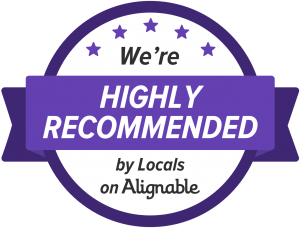We prepare for vacations, meetings for our jobs, and other areas in our lives, so why don’t we prepare for our death? We are all going to die – that is a fact. We don’t know the day or the hour, but we all know that someday, our lives will end.
Look around your home. Who is going to clean out your closet, go through your most personal items, your medicine cabinet, your jewelry box, and your junk drawer? What will they do with the contents once they start looking through things? What will they do with your high school ring that you never wear but loved to look at because it brings back good memories? Who are you going to ask to close your bank accounts, 401 (k), and social media sites? Who will notify the companies you have loans/bills to let them know that you have passed away? Who is going to sell your home, sell your car, and the other valuables that you have collected and cherished over the years?
We might consider these questions from time to time, but not many of us take the time to think it through. If we did, we would do things a little differently, so we are prepared to leave this world.
In this post, I wanted to share an inside look at a few of the challenges a friend of mine encountered as a Trustee for a family member who passed away a few months ago. I spoke with the person I now consider a friend, who was the Trustee. She shared some of the things that we all need to consider as we prepare for the end of life. I hope this post spurs you into action so that you will be ready, for your death or the Trustee/Execuator of an estate you have been asked to close out by a family member or friend.
My friend had a beautiful home, beautiful art, and jewelry that was special to her. When she passed away, it became the responsibility of the person she asked to “take care of things.” It was a huge responsibility. During one of our calls, my friend shared with me how challenging things were. At a time when she was mourning her family member’s death, she had lists and lists of things to do to close out the estate. She was exhausted.
As I listened, I started to realize how hard this was for her. She was grieving the loss of a loved one, yet she had this huge responsibility. She did have help from good friends, but the burden was definitely on her.
One of the friends was a real estate agent who helped her sell the house. She knew a great deal about what needed to be done, having assisted others in closing out estates throughout her career. She offered several suggestions, but numerous obstacles arose along the way that were not anticipated.
Listening to her, I thought, how can I learn how to be better prepared when it comes time to close my home if my husband passes before me? I looked around and realized how much needed to be done… and it made me shudder.
I asked my friend if she would share some of the things she learned during the process. I told her there was no rush. I did not want to put any pressure on her to do this, but I wanted to learn about her experience so I could know myself and also help others.
.True to her word, she came through with a list of things she wished she had known and done before her family passed so that she would be better prepared. These challenges were primarily focused on financial and legal issues. In future posts, I will write on some of the other challenges that come with helping to close our own or someone else’s life belongings when the time comes.
Challenges that come with closing an estate:
In early 2025, I lost a family member. I was designated as the Trustee of the estate. I had no idea of the work involved in assuming this role. The following are some recommendations/ideas on how a Trustee’s job can be made easier, if specific actions are taken when a Trust is established and the Trustee(s) are assigned.
Since I was not on the bank account(s), the attorney handling the Trust assigned me an EIN (Employer Identification Number). This was done to establish a Trust account at a banking institution to pay bills, etc. This may NOT be necessary in all instances.
Bank Accounts:
It is imperative that whoever is chosen as a trustee has the name(s) on all bank accounts. Additionally, ensure the Trustee has the name of the banking institution, account number(s), user ID, and password for online bank access if established.
Recurring Payments: Payments made monthly, quarterly, etc
The Trustee must know how bills are paid: (very important)
- Written check
- Auto pay via credit card or bank account
The Trustee should be aware of the user ID and password for all payment accounts. It’s also good to have a contact telephone number for each. This makes things much easier. Things like:
- monthly utilities
- lawn care
- any loan payments; mortgage, vehicle, etc
- any insurance policy payments
- Provider(s) for: cell, internet, cable provider…who, account numbers, user ID, and password if established
Credit Cards
Trustees should know the type of cards: AMEX, VISA, etc
Customer Service numbers are on the back of the card.
Trustee should know:
- card #, expiration date, security code (all on card)
- user ID and password for online access for each credit card, if established
NOTE: If online access is established, the account will indicate how recurring bills are paid.
Health Care Coverage
If Medicare, provide the Medicare number, any user ID, and password if established
If Supplemental policy, provide the number, any user ID, and password if established
Social Security
- Provide SS# and any user ID and password if established
- If the body is cremated, the company providing the service will notify SSA and also offer a Certificate of Cremation.
Any investment account
Trustee should know:
- Investment company name
- Account number(s)
- Customer Service contact number
- User ID and password, if established
Added note: For investment accounts, bank accounts, and other similar accounts, if beneficiaries are established and reflected on the accounts, the funds will be distributed directly to the designated beneficiaries. This will NOT be part of the Trust.
This is referred to as TOD:
Transfer-on-Death (TOD): This is a legal term used in estate planning, specifically for transferring assets (such as brokerage accounts, bank accounts, or real estate) to named beneficiaries without the need for probate. TOD designations are a way to ensure that assets are passed directly to your heirs upon your death, thereby avoiding the probate court.
I cannot emphasize this enough. It’s always best to sit down with the beneficiaries and go over various aspects of your estate.
Establish a Power of Attorney
A power of attorney gives one or more persons the power to act on your behalf as your agent. The power may be limited to a specific activity, such as selling your home, or be generated in its application. The power may give temporary or permanent authority to act on your behalf. (States may have different decision-making power)
Let your beneficiary know how you wish to have any jewelry or art valuables handled.
If there is a particular charity you wish to donate your furniture, etc., to, please let them know.
If you’ve lived in your home for many years, it’s best to start by clearing out the accumulated items you’ve had over the years. This can be a daunting task for family members/beneficiaries.
I thank my friend Diane for putting this together. I hope that all who read this can take away information that will help you put into place measures that will assist the person you have asked to close out your estate or that of a loved one.
I look forward to your questions and comments. Please put them in the comment section or email me directly at allewellyn48@gmail.com














Dear Anne,
I thought I had everything covered but from this good advise, I can see that I have a lot more to do.
Many thanks for these good suggestions,
Thank you for this information. My husband and I really need to do this now. Where to start? Ant tips to get my husband motivated.
So critically important and yes, a daunting task. I have been working towards getting everything in place for my own family and still feel a bit overwhelmed. It does not however, pay to put it off. Make a list and get started now, don’t wait. Thanks, Anne for raising this issue up for everyone to take note.
Very time-consuming. My husband was very detailed and had everything in trust except our home when he passed. Due to societal and tax changes each year, ALL contacts wanted additional validation!
Fortunately, although a daunting task, it is extremely important to be prepared.
THANK YOU for highlighting the actions that need to be in place for those who are not prepared. I know many who do not want to face the facts of End of Life Preparation.